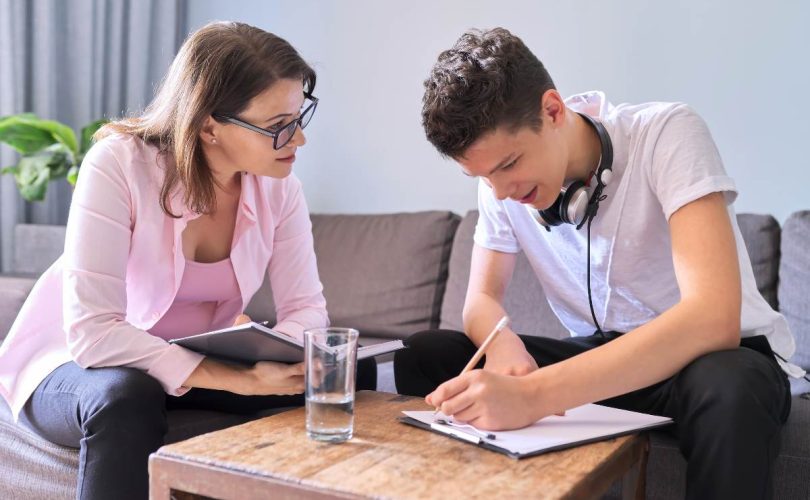Teen therapy in Venice is becoming a critical lifeline for families trying to help their teenagers manage anxiety.
The pressures teens face today are far more intense than even a decade ago.
From social media comparison loops to academic expectations and identity struggles, many teens feel like they’re drowning.
As a parent, watching your child retreat into themselves—stuck in a storm of worry, panic, or emotional shutdown—is heartbreaking.
I’ve seen it firsthand.
My 15-year-old niece, Maya, started having anxiety attacks in her sophomore year.
Straight-A student, well-liked, but inside?
She was spiraling.
At first, it was subtle—avoiding hangouts, sleeping too much, zoning out at dinner.
Then the panic attacks hit.
That’s when my sister sought professional help.
She found a therapist specializing in teen therapy in Venice—and it changed everything.
The turning point came when Maya finally had a safe space to talk without judgment, without pressure.
Teen therapy Venice gave her tools to name what she was feeling, strategies to manage the stress, and most importantly, someone who truly listened.
Understanding Teen Anxiety Today
Teen anxiety isn’t just “normal stress.”
It’s chronic overthinking.
Tight chest.
Racing thoughts.
Avoidance of school, friends, or things they used to enjoy.
And in places like Venice—where social image and performance are often amplified—teens may feel added pressure to “keep it all together.”
The coastal calm of Venice can be deceptive; beneath the surface, many teens are silently struggling.
Why Talk Therapy Works for Teens
Teens don’t always open up to parents.
That’s not your fault—it’s just development.
They need someone outside the family system.
A therapist who knows how to speak their language.
Teen-focused therapy often uses a mix of approaches like CBT (Cognitive Behavioral Therapy), mindfulness, and emotion regulation skills.
The therapist acts as both a mirror and a mentor.
They reflect what’s going on emotionally and help your teen develop resilience—not just in the therapy room, but in daily life.
The Power of Early Intervention
Here’s the thing: the earlier you intervene, the better the long-term outcome.
Waiting until a teen’s anxiety turns into depression, academic failure, or self-harm is like waiting to treat a sprained ankle until it’s broken.
Early teen therapy can prevent that cascade.
And in a vibrant, creative place like Venice, there are resources tailored to help teens thrive—not just survive.
I once worked with a high school volunteer program where students who’d been through therapy were mentoring younger peers.
One teen told me, “I thought I was broken. But therapy helped me realize I was just overwhelmed—and that’s okay.”
That reframe?
It changed their life.
Signs It’s Time to Consider Therapy
How do you know it’s more than just a rough patch?
Here are some red flags to look out for:
- Constant worry about school, friends, or future
- Avoiding social situations or school altogether
- Trouble sleeping or sleeping too much
- Irritability or frequent emotional outbursts
- Low self-worth or talking negatively about themselves
- Changes in appetite or unexplained physical symptoms
These signs don’t always scream “anxiety,” but they often whisper it.
And therapy can help teens decode what’s really going on underneath.
What a Teen Therapy Session Looks Like
Therapy sessions aren’t as formal or stiff as you might imagine.
In fact, many therapists make their space intentionally cozy—no sterile couches or clipboards.
There might be art materials, sand trays, or music playing.
Sessions often begin with check-ins—“What’s been on your mind lately?”—and move into skill-building or guided reflection.
Some teens might talk the whole time.
Others doodle while sharing bits and pieces.
The pace is theirs to set.
Building Trust Takes Time—but It Happens
Maya didn’t spill her soul in the first session.
It took a few weeks of showing up, being seen, and not being judged.
That consistency was key.
She once told me, “It felt like I didn’t have to be ‘on’ in there.”
For teens who are constantly performing—at school, online, at home—that space to just be is a huge relief.
It’s not about fixing your teen.
It’s about helping them feel safe enough to face what’s going on inside and build confidence in their ability to handle it.
Parents, You’re Part of the Process Too
One thing that often surprises parents?
You’ll likely be involved too.
Not in every session, but through check-ins or family meetings.
Therapists often help parents understand what’s helpful (and what might unintentionally make anxiety worse).
It’s not about blame.
It’s about teamwork.
Helping your teen isn’t a solo mission—it’s a shared path, and therapy gives you both the tools to walk it together.
Finding the Right Fit in Venice
Venice has a vibrant, diverse therapy scene.
From licensed marriage and family therapists to clinical social workers with youth experience, the key is finding someone who gets your teen’s world.
If your teen is neurodivergent or dealing with grief or trauma, make sure the therapist has experience in those areas.
Trust your gut—and theirs.
If the vibe isn’t right after a couple of sessions, it’s okay to try someone else.
Therapy is a relationship first and foremost.
Final Thoughts
Teen anxiety doesn’t have to define your child.
With the right support—like teen therapy in Venice—they can learn to manage it, grow through it, and come out stronger on the other side.
I’ve seen it happen.
Maya is now thriving in college, speaks openly about her journey, and even volunteers with local youth programs.
Therapy didn’t erase her anxiety.
It gave her the tools to live a full, meaningful life in spite of it.
And that’s the goal.




